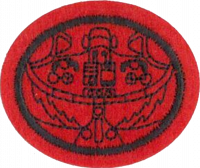Difference between revisions of "AY Honors/Aviators/Answer Key"
| Line 380: | Line 380: | ||
==References== <!--T:16--> | ==References== <!--T:16--> | ||
<references/> | <references/> | ||
| + | <noinclude></translate></noinclude> | ||
| + | |||
| + | [[Category:Instructor Required{{GetLangSuffix}}|{{SUBPAGENAME}}]] | ||
| − | |||
| − | |||
| − | |||
| − | |||
{{CloseHonorPage}} | {{CloseHonorPage}} | ||
Latest revision as of 20:01, 4 October 2021
1
1a
1ai
1aii
1aiii
1aiv
1b
1bi
1bii
1c
1d
1e
1ei
1eii
2
2a
2b
2c
2d
2e
3
We don't have a real plane in the Honor Wiki, but here is some guidance for when you are looking at the exterior of a real plane. A museum of flight with airplanes you can get inside of may be an easy place to meet this requirement. Study up on where the parts should be on the plane and what they should look like before you go, that way you can make all the correct identifications when you are there.
3a
3b
3c
3d
3e
3f
3g
3h
3i
3j
3k
3l
3m
4
We don't have a real plane in the Honor Wiki, but here is some guidance for when you are looking at the interior a real plane.
4a
4b
4c
4d
4e
4f
4g
4h
4i
4j
4k
4l
5
The requirement does not specify how to detail their role and importance, but a short written or oral report should suffice, although visual depictions, blog posts etc would also be acceptable. Here are links to the Wikipedia articles on each pioneer, which is a good starting point for further investigation:
- Leonardo da Vinci: a man of diverse talents. He conceptualised flying machines like a helicopter that if built, would be pretty close to operational.
- Daniel Bernoulli: Swiss math and physics pioneer born in 1700. His work in fluid dynamics established the science behind how a aircraft wing can get lift, over 100 years before the principles were successfully applied to flight.
- Sir George Cayley an Englishman who in around 1799 made significant break throughs in aviation science. Designed first successful human glider. Discovered the four aerodynamic forces of flight weight, lift, drag, thrust and cambered wings, basis for the design of the modern airplane. Called the father of aviation by some.
- Otto Lilienthal
- Gustave Whitehead
- Octave Chanute
- Orville & Wilbur Wright,
- Glen Hammond Curtiss
- Amelia Earhart
6
6a
The intent here to take a flight sitting beside or near the pilot in the cockpit, not as a passenger on a commercial jet where you learn very little about the process of flying an airplane. This is why the honor says "intro flight". There is likely going to be a fairly significant cost associated with this activity. An intro flight may spur or reinforce the Pathfinder's desire to explore aviation as a vocation or a hobby.
6b
7
7a
i
ii
7b
i
ii
As with other honors that require interviewing professionals, the following are good guidelines:
- Make the appointment well in advance
- Be prompt and don't waste the professional's time with foolishness
- Be thankful they gave their time to talk to you
- Be prepared with good questions, but be open to asking good spontaneous followup questions
ADD Discussion
References
- ↑ The Wright brothers are one historical character


